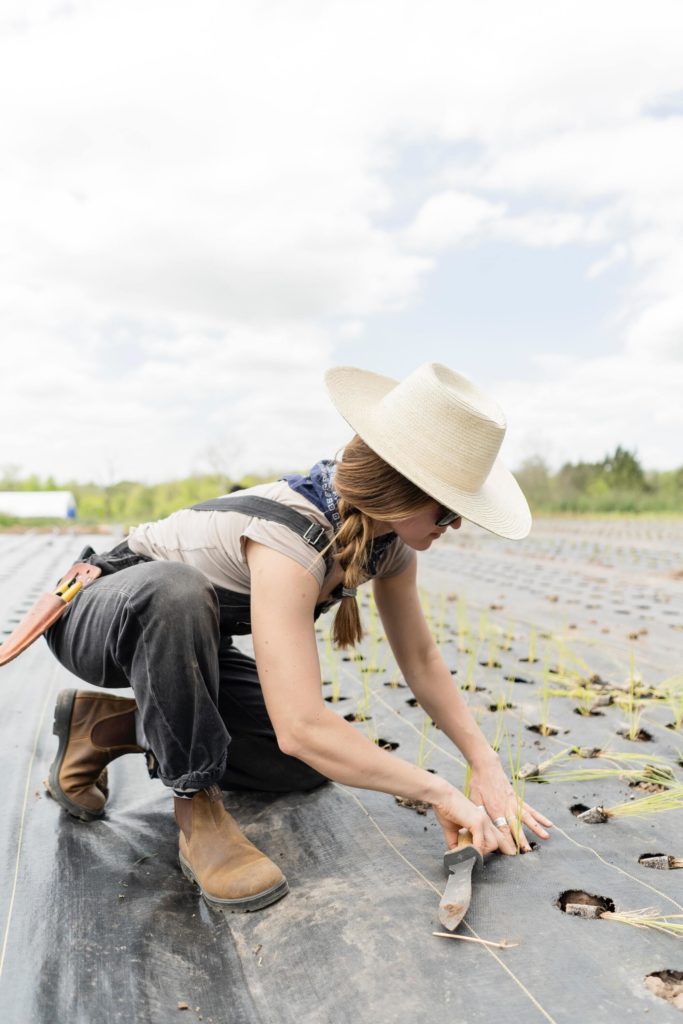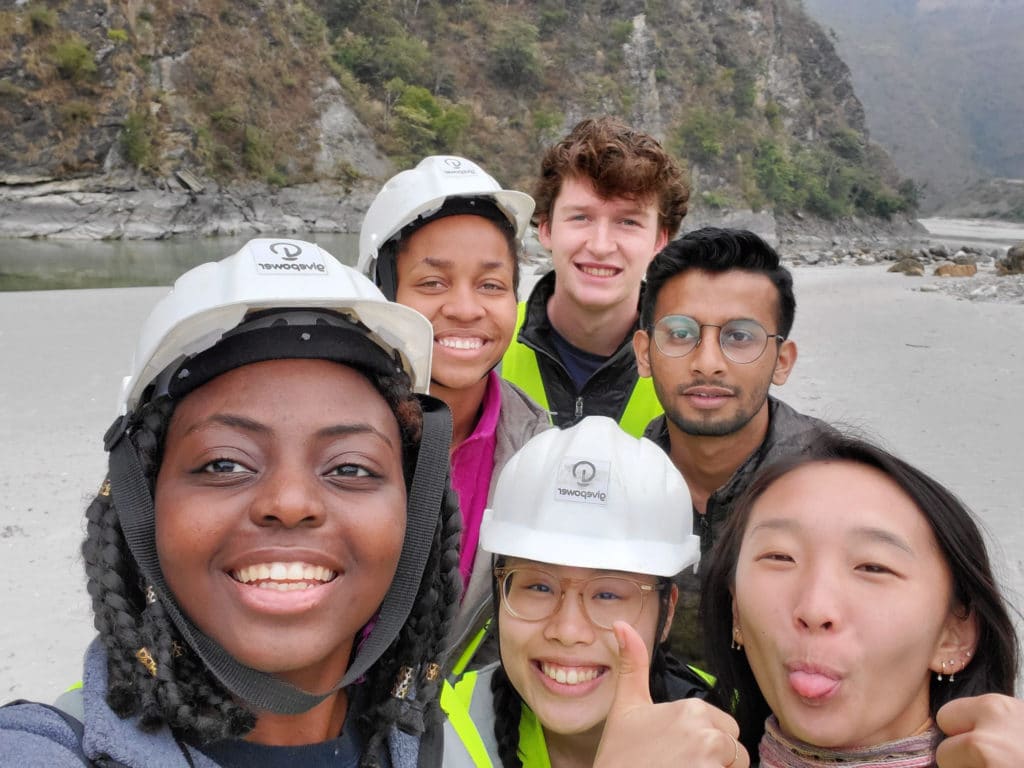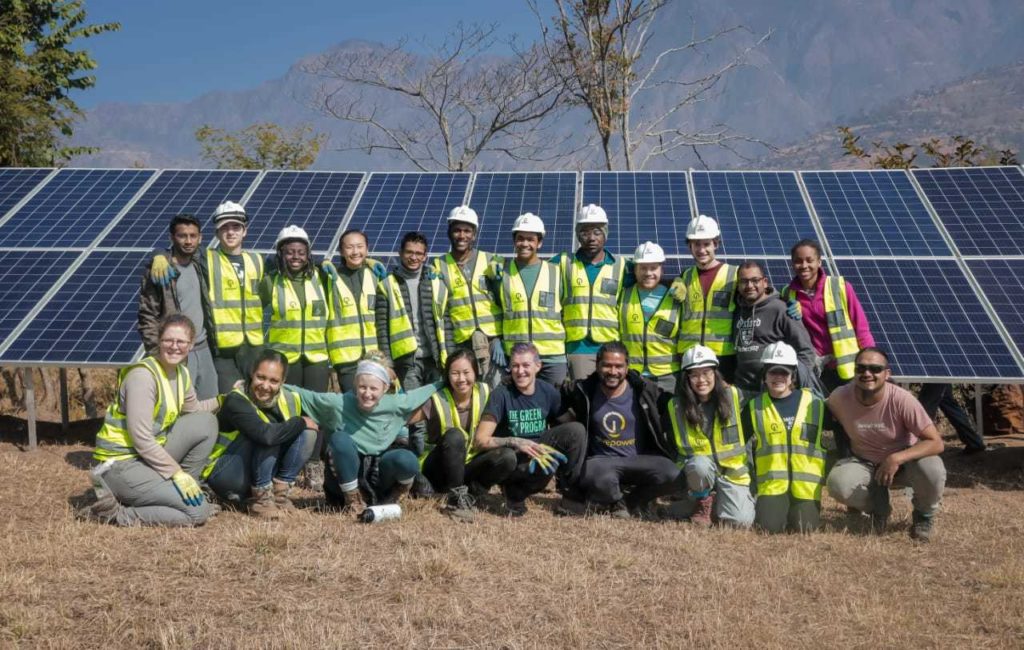Leonie Paul is a Master’s graduate in Sustainable Destination Development from Uppsala University in Sweden, one of the world’s best research institutions and universities. Her thesis research focused on the complex, interdisciplinary, and personal nature of Education for Sustainable Development (ESD) and how it questions the status quo of traditional pedagogic approaches and learning techniques.
Using The GREEN Program (TGP) as a case study, specialized in ESD, Paul’s research investigates the relevance of experiential studies in a foreign setting and the short and long-term impacts and potential for experiential education for sustainable development. With her degree, Paul hopes to promote the development towards a more sustainable world, awareness in everyday consumption, and usage of resources.
Read Paul’s full white paper and research study HERE.
1. What motivated you to study learning outcomes from sustainable development programs abroad with The GREEN Program?
Right from the start of my Master’s studies, I knew what I wanted to achieve: Communicating the message of sustainability. Therefore, the focus of my thesis work was soon set in the area of Education for Sustainable Development. But why not combine the rather theoretical work with my passion for traveling and exploring? That’s when I found TGP and its outstanding teaching approach. Nevertheless, as we know from various scientific disciplines, we need figures and facts to prove the validity of any concept. Together with TGP, we came up with a comprehensive study to exactly show the potential that lies within experiential learning.
2. What program learning outcomes did you monitor, and what did you find?
Firstly and most importantly, it works. The study found that overall the knowledge in sustainable development was enhanced and greater awareness for personal and professional choices of TGP alumni was created. Strongly related to their academic background, the participants concentrate their pro-environmental behavior on waste management, recycling, and energy consumption. I found that the establishment of a connection between the students themselves, exchange with locals and professionals, but mainly the immersion into a foreign setting were found to cause long-lasting impacts.
TGP Alumni gained a greater understanding of sustainability in general and had access to possible solutions that provide concepts towards a “greener” future. 95% of TGP students experience a sustainability-related shift with an increase in awareness and consciousness of personal impacts, personal exchange, and expertise in sustainability issues. Thereby the exposure to real-world examples, foreign cultures, and the exchange between the students but also professionals and experts had the most significant impact on the participants. My favorite outcomes are the personal achievements of alumni, for example, the development of an environmental education course or the invention of a micro-plastic trawl for rivers.
TGP’s study trips equipped the participants with a broad range of ESD learning outcomes and the ability to translate those into their personal spheres. Combining a diverse variety of pedagogical approaches supported such a process. Apart from that, the importance of sustainability in a professional context is taken up at various points.
“95% of TGP students experience a sustainability-related shift with an increase in awareness and consciousness of personal impacts, personal exchange, and expertise in sustainability issues.”


3. What impacts did you find on the career path and trajectory of program participation?
In summary, the results of the final evaluation of TGP underlines the transformative impact of experiential learning, putting impulses from experiences into purposeful actions. The present findings related to “green” study trips encompass the potential to foster a highly aware and pro-environmental minded future workforce that can actively promote a shift towards sustainability in various disciplines. 50% of the employed survey participants/alumni are already working in the field of sustainability and therefore contributing to important developments on a daily basis.
Taking part in one of the TGP trips helps students to confirm or reorient their academic choice. From the alumni students who decided to change their studies to a different field after the participation, 74% switched to a program related to sustainability which will most likely guide them towards a green career as well. Overall, TGP alumni are strongly sustainability-driven in their career choices and are determined to have an impact in sustainable development as part or even by the nature of their occupation.
“The exposure to real-world examples, foreign cultures, and the exchange between the students but also professionals and experts had the most significant impact on the participants.”

4. Did you find any observable long-term or short-term impacts on the attitudes and behaviors of program participants, and their sustainable living practices, action, or activism after the program?
The study found that being exposed to foreign external influences has great transformational power in terms of knowledge and personal development. Returning from their travels, alumni promote small- and large-scale shifts on various levels in their home destination. Findings have expressed that the visited country provided inspiration and outlooks on how a transformation to sustainability can be achieved. This gained understanding and solution-oriented thinking are often hoped to be or already applied within the own setting at home.
The TGP alumni are concerned about sustainability issues and their personal impacts in this regard. Their own consumption patterns and behaviors are critically observed and partly adjusted to a certain extent. Usually, the pure awareness about a non-sustainable practice is the first step towards improvement, which is why the outcome can be rated quite positively. Also, the participants have shown the will to spread the message of sustainability and their TGP learnings within their personal, but also professional environments. Consequently, TGP’s impact can create a positive snowball effect.
“TGP alumni are strongly sustainability-driven in their career choices and are determined to have an impact in sustainable development as part or even by the nature of their occupation.”

5. Did you find evidence that studying sustainable development through a global lens via education abroad is a particularly effective and impactful way to facilitate sustainability education and activism?
Cause and effect, especially in the complex process of learning, these are not easily assigned or determined. However, throughout the study, it became evident that participants were able to develop a vision from their newly gained experiences, personal exchange, and a foreign perspective. This vision for a greener future is then brought back home and eventually transferred into action.
Due to the findings, the relevance of experiential learning in a foreign setting is strongly supported. Sustainability related study trips are able to contribute to the pro-environmental behavior of participants by providing knowledge, awareness, and a personal connection through experiences with the related issues along with challenges and solutions. Students experience a deeper connection with the place visited after returning home and pay greater attention to preservation and development in various fields of sustainable development. The wish for change is at least intended to be brought in the professional career choice.
I believe it is and will become even more important in higher education to implement global lenses within study programs. Climate change doesn’t know borders and we need to collaborate on all levels to fight this severe crisis.
